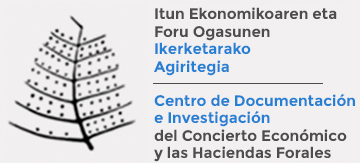Banca d’Italia would like to invite everyone to submit new research for presentation at the XXII Banca d’Italia Public Finance Workshop, to be held in Rome on September 5 and 6, 2024.
While they welcome high quality contributions from any subfield of public economics, the workshop will focus mainly on the following main areas:
- Budgetary composition, quality of public finances, and long-run growth: In many advanced countries the debt legacy of past crises and the looming unfavorable demographic trends translate into fiscal consolidation needs. To minimize the size of the fiscal effort, governments could enhance the growth-friendliness of the budget. We welcome work on how this can be pursued, and more generally on the issue of the quality of public finances. This could encompass analyses about: (i) the determinants and the macroeconomic effects of public investment choices (size, composition, management); (ii) the efficiency and effectiveness of public education and health-care systems; (iii) the impact on physical and human capital accumulation of the design of the tax system and of the distribution of the tax burden across different tax bases.
- Fiscal policy and climate change: It is by now widely recognized that climate change represents a major challenge for our economies and societies. The consequences of environmental taxation and the role of public subsidies in improving energy efficiency and in spurring innovation in the clean energy sector are very relevant topics. We would also welcome studies estimating the fiscal costs stemming from preventing and adapting to climate change and on the design of the institutional arrangements needed for the governance of the so-called “green-transition”.
- Multilevel fiscal governance: Now that the long and bumpy reform process of the EU fiscal framework is near to an end, it is worthwhile to pick up the discussion about what it will entail for the fiscal stance and the debt dynamics of the euro area and which elements are still missing from the picture (first and foremost, a centralized fiscal capacity). This might also be the right time to think again about the proper apportionment of fiscal resources and spending responsibilities across levels of government within the national state. In particular,
it is important to better understand the impact of the degree of fiscal decentralization on the ability to pursue the general government objectives in terms of macroeconomic stabilization, efficiency, fairness across regions and among individuals.
- Budgetary policies, the digital economy and Artificial Intelligence (AI): Without a proper international coordination among tax administrations, the digital economy might create difficulties for governments, to the extent that “Big tech” companies do not necessarily pay taxes in countries in which their customers are located and because companies working in this sector can in principle more easily exploit cross-country tax differentials to minimize their tax duties. Moreover, the ongoing diffusion of AI tools – with likely heterogeneous impacts across workers – might warrant studies on how the design of the welfare state should change. On the other hand, the diffusion of new and more advanced digital services could be an opportunity for governments as well. For example, in principle they could be used to devise procedures to spot tax evasion and to identify the most deserving beneficiaries of welfare programs. They can also help in delivering public services in a more efficient way or support the building-up of specific infrastructure that can enhance potential growth How to fairly govern such a process, avoiding enlarging divergences across EU countries and fragmentation of the EU markets is crucial.
If you are interested in presenting a paper at the workshop, please send a long abstract or (preferably) a draft of the paper to PubFinWorkshop@bancaditalia.it. The deadline for the submission is 31 May 2024, and authors will be notified at the latest by the end of June.
Preference will be given to proposals more closely related to the themes outlined above and adequately detailed.
Organizing committee: Marzia Romanelli (Banca d’Italia), Martino Tasso (Banca d’Italia), Pietro Tommasino (Banca d’Italia), Marco Romani (Banca d’Italia)
Funding: The conference is sponsored by Banca d’Italia. There is no registration fee, and meals during the conference and the social dinner will be provided for all participants.



